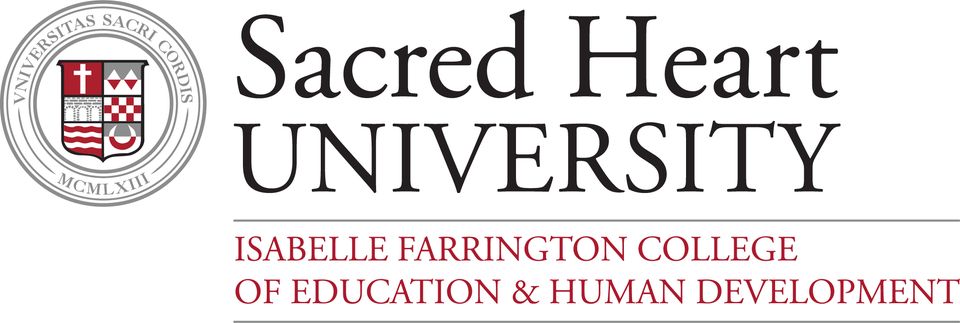Submissions from 2010
Distributed Learning in British Columbia: A Journey from Correspondence to Online Delivery, Tim Winkelmans, Barry Anderson, and Michael Barbour
Submissions from 2009
Today’s Student and Virtual Schooling: The Reality, the Challenges, the Promise, Michael K. Barbour
PowerPoint Games in a Secondary Laptop Environment, Michael K. Barbour, Jim Kinsella, and Lloyd P. Rieber
Continuing Change in a Virtual World: Training and Recruiting Instructors, Michael K. Barbour, Jim Kinsella, Matthew Wicks, and Sacip Toker
Beyond Volunteerism and Good Will: Examining the Commitment of Schoolbased Teachers to Distance Education, Michael K. Barbour and Dennis Mulcahy
Social Networking in Cyberschooling: Helping to Make Online Learning Less Isolating, Michael K. Barbour and Cory Plough
The Reality of Virtual Schools: A Review of the Literature, Michael K. Barbour and Thomas C. Reeves
Homemade PowerPoint Games: A Constructionist Alternative to WebQuests, Michael K. Barbour, Lloyd P. Rieber, Gretchen Thomas, and Dawn Rauscher
Student Performance in Virtual Schooling: Looking Beyond the Numbers, Michael Barbour and Dennis Mulcahy
“Good Politics is Good Government”: The Troubling History of Mayoral Control of the Public Schools in Twentieth-Century Chicago, James C. Carl
Our Friend “The Enemy”: Elite Education in Britain and Germany before World War I (Book Review), James (Jim) C. Carl
Research and Practice in K-12 Online Learning: A Review of Open Access Literature, Cathy S. Cavanaugh, Michael K. Barbour, and Tom Clark
Fernando de Azevedo e a Questão da “Raça Brasileira”: Sua Regeneração pela Educação Física [Fernando de Azevedo and the Issue of the “Brazilian Race”: Regeneration through Physical Education], Karl M. Lorenz and Ariclê Vechia
Imperial Collegio de Pedro II: um Elemento de Manutenção da Unidade Nacional [The Imperial College Pedro II: Contributing to the Preservation of National Unity], Karl M. Lorenz and Ariclê Vechia
The Bakhtiari Alphabet, Cima Sedigh, Reza Ghadyani, and Edward Malin
Literacy Initiatives in the Urban Setting That Promote Higher Level Thinking, Karen C. Waters
School, Home, and Community: A Symbiosis for a Literacy Partnership, Karen C. Waters
Strategy Instruction and Lessons Learned in Teaching Higher Level Thinking Skills in an Urban Middle School Classroom, Karen C. Waters
Submissions from 2008
Secondary Students' Perceptions of Web-Based Learning, Michael K. Barbour
History by the Minute: A Representative National History or a Common Sense of the Majority?, Michael K. Barbour and Mark Evans
How Are They Doing?: Examining Student Achievement in Virtual Schooling, Michael K. Barbour and Dennis Mulcahy
Robots that Teach: Developing an Integrated Curriculum for Middle School Math, Antoinette P. Bruciati
Determining the Role of Technology in Supporting the Professional Growth of Administrative Leadership Candidates, Antoinette P. Bruciati and Gail Nordmoe
Free Marketeers, Policy Wonks, and Yankee Democracy: School Vouchers in New Hampshire, 1973-1976, James (Jim) C. Carl
Not On Our Watch!, Randall G. Glading
Overcoming the Senior Slump: Meeting the Challenge with Internships, Randall G. Glading
Idéias Educacionais Transnacionais e o Ensino Secundário Brasileiro: o Imperial Collégio de Pedro II como uma Versão do Ensino Secundário Frances [Transnational Education Ideas and Brazilian Secondary Education: the Imperial College Pedro II as a Version of the French Lycée], Karl M. Lorenz and Ariclê Vechia
A Escola Alemã versus as Políticas Educacionais Nacionais na Primeira Metade do Século XX: Transformando Imigrantes Alemães em Cidadãos Brasileiros [The Deutsche School vs. National Educational Policies in Early Twentieth-Century Brazil: Transforming German Immigrants into Brazilian Citizens], Karl M. Lorenz, Ariclê Vechia, and António G. Ferreira
Schooling and the “Hygienization” of Less-Privileged Children in Brazil, 1870-1900, Karl M. Lorenz, Ariclê Vechia, and António G. Ferreira
Submissions from 2007
Who’s Researching Virtual Schools?: A Case for Instructional Technologists, Michael K. Barbour
Portrait of Rural Virtual Schooling, Michael K. Barbour
Principles of Effective Web-Based Content for Secondary School Students: Teacher and Developer Perceptions, Michael K. Barbour
Situating the Georgia Performance Standards in the Social Studies Debate: An Improvement for Social Studies Classrooms or Continuing the Whitewash, Michael K. Barbour, Mark Evans, and Jason Ritter
Social Constructivist e-Learning: A Case Study, Michael K. Barbour and Peter Rich
Learning Styles: A Focus upon E-Learning Practices and their Implications for Successful Instructional Design, Morris Cooze and Michael Barbour
How High School Mentoring and Internship Programs Prepare Students for Success after High School, Randall G. Glading
Helping Boys Succeed in School: A Practical Guide for Parents and Teachers, Terry W. Neu and Rich Weinfeld
Extending the Conference Through BlogTracks: Reflections from the First Year of a New Presentation Format, Richard E. West and Michael K. Barbour
Submissions from 2006
Virtual Schools: Planning for Success, by Zane L. Berge and Tom Clark, eds. (Book Review), Michael K. Barbour
Mentoring Student Teachers from a Distance: An Action Research Project, Michael K. Barbour, Anthony Thomas, and Jason Ritter
An Inquiry into Retention and Achievement Differences in Campus Based and Web Based AP Classes, Michael Barbour and Dennis Mulcahy
Michael Graham Moore: A Significant Contributor to the Field of Educational Technology, Michael Barbour and Thomas C. Reeves
Using a Robotic Arm to Evaluate the Programming Ability of K-12 Educators, Antoinette P. Bruciati
Disrupting Preconceptions: Postcolonialism and Education, ed. by Anne Hickling-Hudson, Julie Matthews, and Annette Woods, James C. Carl
African American Literature: Books to Stoke Dreams, Jane M. Gangi and Aimee Ferguson


